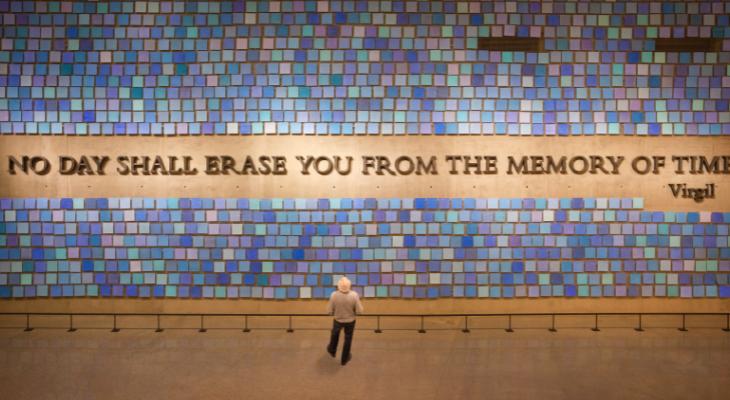A Stanford Chaplain Remembers 9/11
September 9, 2021

My cousin moved to New York two months before 9/11. My sister and I helped her and her family move. We were so excited to be in the city. It wasn’t until we saw their building on the news as one of the buildings in lower Manhattan than needed to be evacuated that I realized how real it all was. Her daughter went to school across the street from the World Trade Center. Her daughter was one of only two students in that first grade class who did not lose a parent that day.
My cousin is a doctor, and when she saw the news, she went straight to the hospital to help. The phonelines went down, so could not know for nine hours that a teacher was able to rush her daughter and the rest of their class to safety. We were lucky to not have lost anyone that day, but it was a harrowing day for our family. Then, the spikes in Islamophobia were swift, severe, and kept repeating every election cycle. Our Maryland community lived within an hour drive of the Pentagon. It was surveilled and harassed for years. More FBI agents were present at the next jumah than actual congregants.
I was in my first year of college in 2001, and now I am a college chaplain that counsels Muslim students, the majority of which got bullied at some point for their identity. I protested the wars in college and now 20 years later with hundreds of thousands of lives lost and many more broken, Iraq and Afghanistan were left shattered. I am angry that the first responders from that day had to beg to have their health care costs covered and some passed away before they received any support. And in the midst of it all, we still have to have conversations about how Islam is not oppressive to women and about the cost of war to the women our government claimed to be for. It has been 20 years, but the pain of that day is still present in so many places.
I remember Zaynab, Prophet Mohamed’s granddaughter, who witnessed all of her male family members being killed including her brother and her sons in a single day. Yet, when asked about that day, she said all I saw from God was beauty. Her faith was so deep and profound. Her retelling of her family’s tragedy was so moving, that she was exiled out of fear that her words would be enough to start a revolution. I think of her and hope that if I persevere and continue to stay rooted in my dignity and the dignity of ever person, that in the next life I will be honored with her company and the company of countless men and women who faced tragedy with faith and dignity.
Share
Related Articles
American Civic Life
We Commemorate, We Commit: Out of Catastrophe, a Conversation on Connection and Repair
American Civic Life
Higher Education




